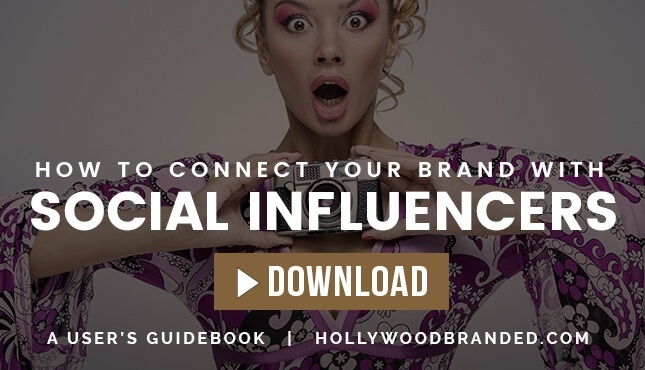The FTC Takes On Social Influencer Sponsored Posts
Table Of Contents
The Crackdown Brands & Their Agencies Should Fear
With influencer marketing on social media becoming increasingly popular over the last few years, it comes as no surprise that the practice would have to adapt to mainstream advertising regulations as it became more mainstream. As a result, the Federal Trade Commision (FTC), who regulates all things advertised to consumers, has recently clamped down on influencer marketing in order to make sure consumers are aware that it is indeed advertising - and as noticeable as other forms as marketing.
While some influencers and brand partners are open to hashtagging their posts, not everyone fully adheres to the guidelines. In this blog, Hollywood Branded delves into the recent action of the FTC regarding social influencers sponsored posts the legal requirements brands and agencies need to know.

Regulations On Social Media Posting
Brand partnerships with social influencers have worked well for a number of years and will only continue to grow and become more common as time goes on, with companies eager to gain exposure from the established follower base of these influencers.
As a result, the FTC is paying more attention than ever to this marketing practice, and is attempting to enforce laws which require all brand partnerships to be clearly stated with words such as #sponsor or #ad. Gone are they days where celebrities or influencers could post about how great a brand is without acknowledging whether or not they were either paid or gifted free product by the brand.

According to a recent study, Mediakix found that 93% of popular celebrities on Instagram do not adhere to FTC guidelines regarding posts which are likely sponsored. The FTC was set up to protect consumers from false or misleading advertising and as such takes its role very seriously.
And there are watchdog groups that help direct - or redirect - their awareness on a consistent basis.
The ever-changing nature of social media has made it rather challenging for the commission to ensure clarity in advertising, however, and as time goes on they continue to implement new guidelines to deal with the problems that social media presents.
The FTC's Recent Cases With Social Influencers And Brands
The FTC first tackled the issue of disclosure by dealing directly with the companies involved with a lack of full disclosure from influencers. Such cases began in 2014 with Sony, Deutsch LA, Machinima, Lord and Taylor and Warner Bros. as some of the key companies targeted. In each of these cases the company involved would reach a settlement which meant that they would have to greatly monitor the disclosure of their endorsements in the future.
The most recent social media case, the CSGOLotto scandal, was similar to those that came before but additionally saw the FTC target individual influencers for the first. CSGOLotto is an acronym for Counter-Strike: Global Offensive and sees online users gamble on counter-strikes related items. The company was founded by two popular influencers in the world of online gaming, Tom Casell and Trevor Martin. The FTC saw Casell and Martin’s involvement as owners of the company to be particularly misleading as they did not fully disclose their ownership in content which promoted the company.
The FTC has also begun to send letters to individual influencers - as well as brands and their agencies - to warn them of improper disclosure of brand partnerships in their social media posts. The first such instance occurred earlier this year in April when the FTC had sent out letters to over 90 Instagram influencers notating that their relationships with brands must clearly be stated when endorsing products on their social media accounts. An additional 21 high-profile celebrity influencers were sent similar letters stating that they had breached the regulations regarding disclosure of partnerships in their social media posts.

How To Avoid FTC Complaints
With the recent clampdown on influencer marketing by the FTC makes it clear that it may be much more worthwhile to follow the regulations rather than potentially have your brand tarnished for misleading advertising. As a result, it is recommended that all social posts by influencers that are endorsed by a brand should be clearly identified as sponsored by the use of tags such as #sponsored #ad or #paid. It is also important to note that an individual hashtag indicating that the influencer is an ambassador or partner of the brand is considered a little too discreet by the FTC as is tags such as #sp # spon or #ambassador. The FTC also requires those acceptable hashtags to be displayed above the more bar on Instagram posts.
Your Brand And Social Influencers
To find out more about the world of social influencers read our blog which provides 3 tips to make your brand appealing to top social media influencers.
And if you are interested in learning more... check out our infographic on how brands can best work with influencers, and twhat to expect with regards to costs.









